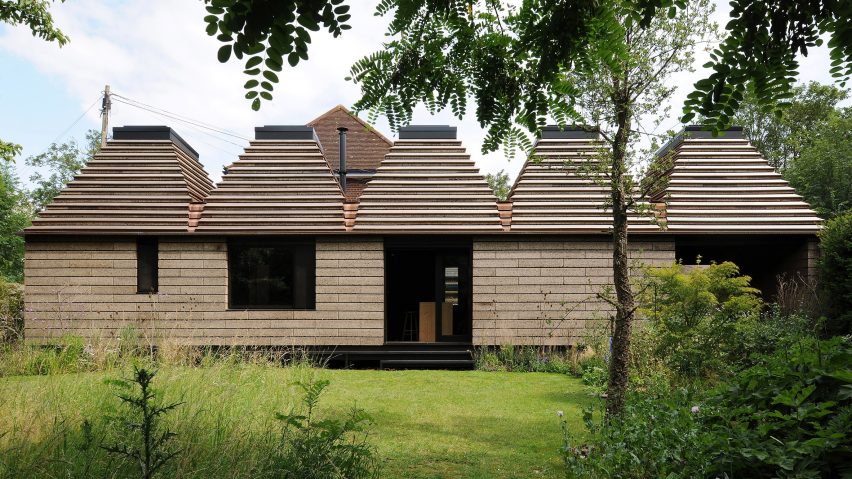This week on Dezeen, we announced the shortlisted architecture, interior and design projects that are in line to win Dezeen Awards in 2019.
Now in its second year, Dezeen Awards recognises the world's best architecture, interior and design projects, as well as the studios and individual architects and designers producing the best work.
This week we revealed the shortlisted projects ahead of the ceremony in October, including a house in England made from recycled cork, Europe's first underwater restaurant, and the world's first silent wireless breast pump.
Another prize-worthy project that was popular with readers this week was John Pawson's overhaul of a London Barbican estate apartment, to which he applied his signature minimalist aesthetic.
Pawson employed the idea of "paring away everything to a state of emptiness" when designing the flat, which now features pale surfaces and a handful of furnishings arranged around a central timber volume.
From minimalism to maximalism, Lamborghini revealed its first hybrid supercar to go into production this week, which it claims will be its "fastest car of all time".
The Lamborghini Sián boasts a combined thermal and electric power of 819 horsepower (602 kilowatts), and is able to accelerate from zero to 62 miles per hour in under 2.8 seconds.
Another lavish project that hit the headlines was a ring designed by Apple's departing design chief Jony Ive and industrial designer Marc Newson.
Pictures of the ring, which is made from a single enormous diamond, were revealed after it was crafted bespoke for the anonymous buyer who purchased it at a Sotheby's auction in December 2018 for US$256,250.
Over in architecture news, Snøhetta completed the sustainable Powerhouse Brattørkaia office in Trondheim, Norway, which produces more than double the amount of electricity that it uses per day.
The studio hopes to set an example for other architecture firms in light of the climate crisis by using 3,000-square-metres of solar panels to provide sustainable energy for itself, neighbouring buildings and city transport.
Global architecture firm Kohn Pedersen Fox completed the 175-metre-high Robinson Tower in Singapore this week.
Designed in collaboration with local practice Architects 61, the Robinson Tower is split into two sections with a gap in between, which has been used to create a green roof terrace shaded by the tower above.
In America, architecture firm Tower Pinkster has designed the Fruitport High School campus in Michigan with the aim of reducing the number of student casualties in the event of a mass shooting.
The school is designed in segments that are divided by fire doors that can be closed at the push of a button to close off compartments.
Large expanses of glazing also open up the sight lines into the school, while indoor hallways will be curved to cut off the shooter's line of sight, and concrete wing walls will provide barriers for students to hide behind.
Elsewhere in the US, new renderings of Álvaro Siza's luxury condominium tower in New York were revealed, offering a full look at the Portuguese architect's first project in America.
The images show the interior and exterior of the 37-storey residential building on 611 West 56th Street, which boasts a stepped form with pale Turkish limestone cladding on its exterior, and minimal decor inside comprised of pale stone and marble, bright white walls and wooden flooring.
Other projects popular with Dezeen readers this week were a set of midcentury emojis by American design retailer Death by Modernism, Bornstein Lyckefors' pale green cabin on a rural Swedish island, and SO&CO's skinny office building slotted between two buildings in Tokyo.

